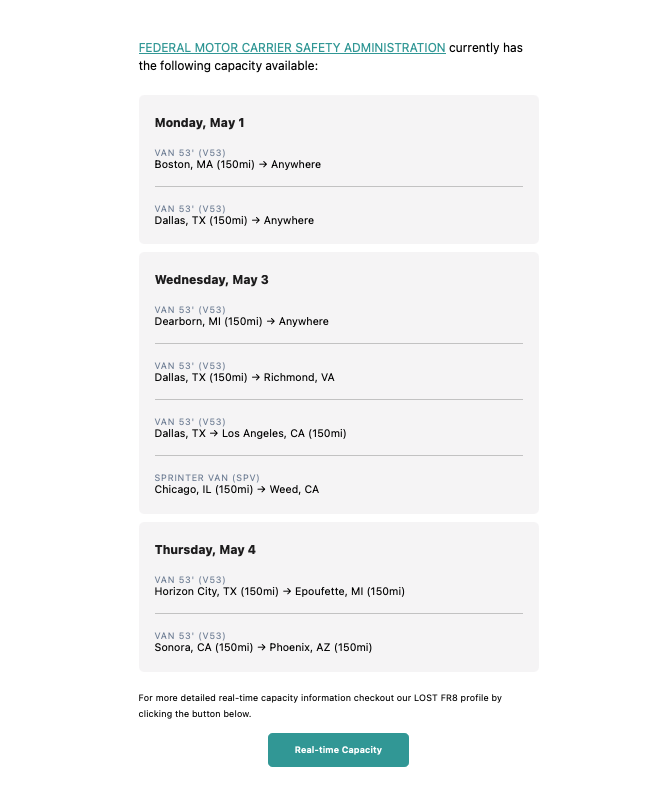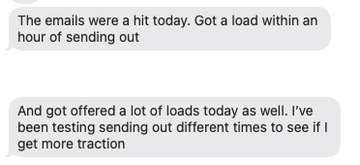If you're a carrier and you get the majority of your freight from brokerages, it's important to understand how they operate. Knowing how they operate is key to understanding how they play the game and, by extension, how you should play the game with them.
There are 5 buckets most freight brokerages fall into. 5 types, if you will. In this post we'll break them down.
1. Traditional/Split/Chicago Model
Here, the brokerage employs a sales team and carrier reps to find customers and maintain relationships with trucking companies. The sales staff get freight from shippers, the carrier reps find carrier capacity to move the freight. Each brokerage will have it's on rules governing carrier / carrier rep relationships AKA what rep can book what carrier. You've likely encountered this system when you call on a posted load and get passed between reps.
How to work with them
Get a carrier rep assigned to you at each of the big brokerages. Use the lostfr8.com truck list sending tool to share your capacity with them. Communicate with them frequently, make sure they know what you need. Get as many reps as you can and overtime you will figure out who is good and stick with them.
Examples:
CH Robinson, Echo, Coyote, Arrive, and others
2. Agent Model
This type of brokerage operates under a corporate brand and utilize the authority and insurance of said brand, but are broken down into individual agent offices varying in size. Some agent offices are individuals, others are larger with dozens of employees. While operations tend to vary within these agencies, traditionally brokers working in an agent model handle getting freight from customers and booking the freight as well. So if you're working with someone from an agent model brokerage, they are more likely to have a direct relationship with the customer as well.
How to work with them:
You can send them a truck list to stay in touch, but more important is to equip them with your preferred lanes. They'll likely be in a better position to give you steady business if it lines up well with your lanes.
Examples:
Armstrong Transport, Mercer Transportation, ATS, Logistics Dynamics
3. Digital
These are brokerages that use mobile apps and algorithms to digitally match available freight with carriers using their apps.
Examples:
Uber Freight, Convoy, and Loadsmart
4. Asset-based
These are trucking companies that also operate as freight brokers. They can guarantee trucks for customers thanks to their own fleet, but customers may not always be the best fit for their fleet and instead the carrier will opt to use their brokerage to move customer freight.
How to work with them:
There is some variability with how brokerages operate within the context of a fleet. Some might be wholly separate and operate a split model. Others might only use their brokerage to fill in the gaps when company trucks can't take the freight. Your stategy will be company by company and will likely be similar to split and agent models.
Examples:
US Xpress, Knight/Swift, Schneider
5. 3PL
These companies manage all aspects of a company's transportation supply chain. While they offer convenience by removing the stress of locating truck capacity, working with a 3PL could make shippers overly reliant on their expertise and provide them less oversight on their processes.
Many bigger brokerages also have managed transportation solutions that might lump them into this bucket as well.



